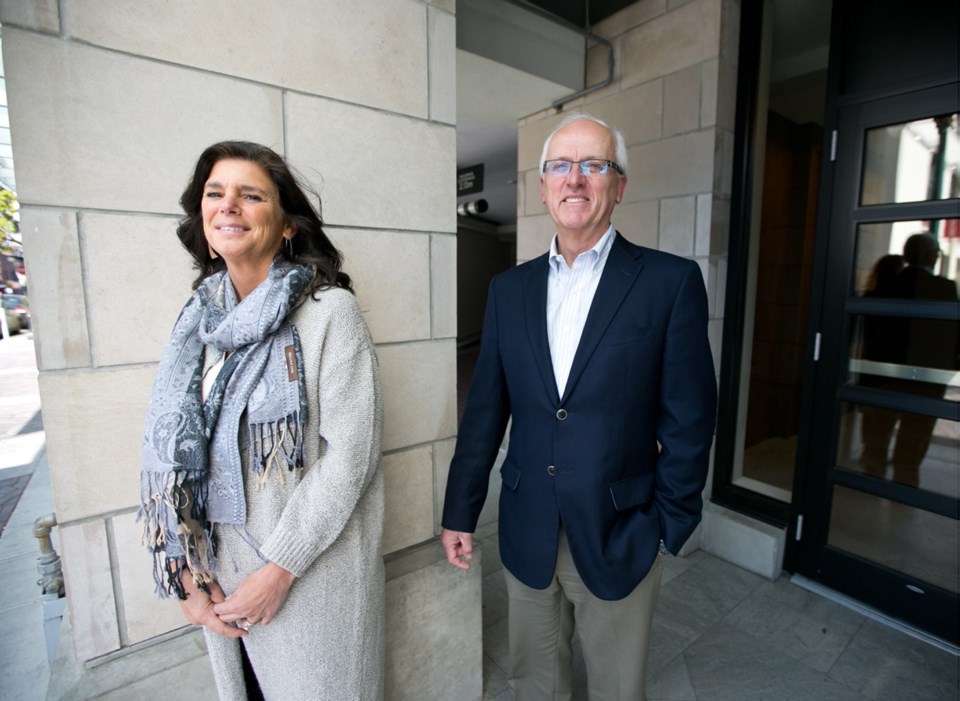Developer Dave Chard has been turning over the earth in Victoria for a decade. And with work now started on his sixth condominium building, he’s putting some of his focus and energy into speaking on behalf of his Island colleagues as the head of the Urban Development Institute.
Chard has just started a two-year term as president of the influential building group, succeeding Robert Jawl of Jawl Properties. He said his tenure will be focused on improving UDI’s local profile, continuing to push the organization’s educational work and advocating on behalf of the industry.
“If we are going to see development occur, those things only happen if all things are properly aligned,” Chard said. That means, beyond market forces, developers require open minds and smooth processes at the region’s municipal halls.
And while the UDI understands there are various points of view on development and debate is needed on all projects, Chard said the organization’s job is to make clear what developers do for the region.
“We are a big driver of the economy. We drive it from a fee perspective. We pay big development costs and big building permit fees — and we alter the tax structure in the city,” Chard said. He noted developers often take parking lots that provide $50,000 in annual tax revenue and replace them with buildings offering $350,000 to $500,000 in tax revenue.
“We are a generator of tax for the cities.”
Chard said the work the UDI does is not about pushing for a free-for-all for developers, but ensuring developers have clear, timely processes to get their projects approved.
“If councils say they will triple fees of permits, for example, you will see development come to a grinding halt,” he said. “We are often seen as the bad guys in the piece, but we have to try and provide some direction to cities because they get direction from a lot of other groups.”
The UDI has grown in strength and numbers in recent years, likely the result of a strong market and low interest rates, and now numbers 120 corporate members in Greater Victoria.
That’s about double the number from five years ago, and represents a broad spectrum of those involved in the development game such as lawyers, engineers, appraisers, developers and construction firms.
UDI executive director Kathy Hogan said the role has also increased from a networking group that advocates for the industry to one that provides education both to its members as well as community groups and municipalities. “We work with municipalities and we have liaison committees that meet with department heads that have anything to do with development,” Hogan said. She said it can mean meeting about barriers that developers face or bigger issues that affect the community.
“Now we are working with the city to help develop some kind of plan to deal with housing affordability,” she said.
Chard said a part of that equation could be trimming the time it takes a project to get through the approval process. “Time is a developer’s worst enemy,” he said. “If that can be shortened the end product can be delivered at a much lower price level.”
As for the vacant retail spaces in Victoria’s downtown core, Chard said a developer-friendly environment can help with that too, although he’s the first to admit it takes time for retail to shift to accommodate a changing downtown.
“When I look at the number of [residential] units built downtown, we still need more in order to keep that retail growing,” he said. “There is some neat retail happening, but they need to be driven not just by tourists in the summer, they need to carry on through the year, which requires more people living downtown.”



